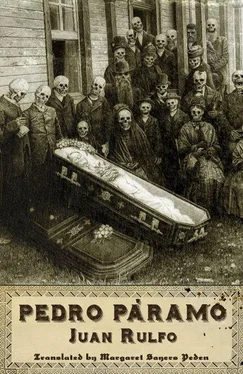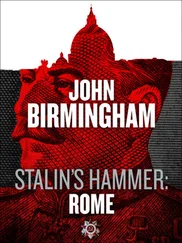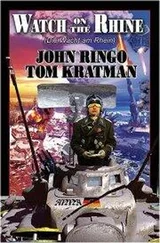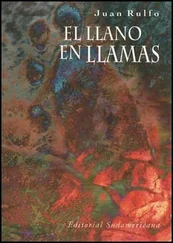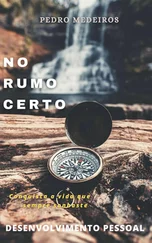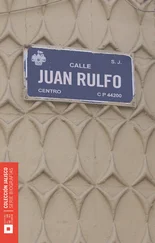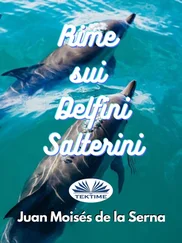El Tartamudo waited, without dismounting from his horse. After a while Pedro Paramo, whom El Tartamudo had never seen, came up and asked:
“What can I do for you?”
“I need to t-talk directly to the patron.”
“I am the patron. What do you want?”
“W-well. Just this. They’ve m-murdered don Fulgor Sedano. I was w-with him. We’d ridden down to the spillways to find out whuh-why the water had dried up. And wh-while we were doing that a band of m-men came riding toward us. And o-one of them yelled ‘I n-know him. He’s the foreman of the M-Media Luna.’
“Th-they ignored me. But they t-told don Fulgor to get off his horse. They s-said they were r-revolutionaries. And th-that they wanted your land. T-take off!’ they told don Fulgor. “R-run tell your patron to be expecting us!’ And he st-started off, sc-scared as hell.
N-not too fast, because he’s so fat; but he ran. They sh-shot him as he ran. He d-d-died with one foot in the air and one on the g-ground.
“I didn’t m-move a hair. I waited for n-night, and here I am to t-tell you what happened.”
“Well, what are you hanging around for? Get on your way. Go tell those men that I’m here anytime they want to see me. I’ll deal with them. But first ride by La Consagracion ranch. You know El Tilcuate? He’ll be there. Tell him I need to see him. And tell those men that I’ll expect them at the first opportunity. What brand of revolutionaries are they?”
“I don’t know. Th-that’s what they c-called themselves.”
“Tell El Tilcuate that I need him here yesterday.”
“I w-will, patron.”
Pedro Paramo again closed the door to his office. He felt old and weary. He lost no time worrying about Fulgor, who’d been, after all, “more of the next world than this.” He’d given all he had to give. He could be useful, though no more than any other man. “But those dumb bastards have never run into a boa constrictor like El Tilcuate,” he thought.
And then his thoughts turned to Susana San Juan, always in her room sleeping, or if not sleeping, pretending to be. He had spent the whole night in her room, standing against the wall and observing her in the wan candlelight: sweaty face, hands fidgeting with the sheets and tugging at her pillow until it was in shreds.
Ever since he had brought her to live with him, every night had been like this, nights spent watching her suffering, her endless agitation. He asked himself how long it would go on.
He hoped not long. Nothing can last forever; there is no memory, however intense, that does not fade.
If only he knew what was tormenting her, what made her toss and turn in her sleeplessness until it seemed she was being torn apart inside.
He had thought he knew her. But even when he found he didn’t, wasn’t it enough to know that she was the person he loved most on this earth? And — and this was what mattered most — that because of her he would leave this earth illuminated by the image that erased all other memories.
But what world was Susana San Juan living in? That was one of the things Pedro Paramo would never know.
The warm sand felt so good against my body. My eyes were closed, my arms flung wide and my legs open to the breeze from the sea. The sea there before me, stretching toward the horizon, leaving its foam on my feet as the waves washed in….”
“Now that’s her talking, Juan Preciado. Don’t forget to tell me what she says.”
“…It was early morning. The sea rose and fell. It slipped from its foam and raced away in clear green silent waves.
“‘I always swim naked in the sea,’ I told him. And he followed me that first day, naked too, phosphorescent as he walked from the sea. There were no gulls; only those birds they call ‘sword beaks,’ that grunt as if they’re snoring and disappear once the sun is up. He followed me the first day; he felt lonely, even though I was there.
“‘You might just as well be one of the birds,’ he said. ‘I like you better at night when we’re lying on the same pillow beneath the same sheets in the darkness.’
“He went away.
“I went back. I would always go back. The sea bathes my ankles, and retreats; it bathes my knees, my thighs; it puts its gentle arm around my waist, circles my breasts, embraces my throat, presses my shoulders. Then I sink into it, my whole body. I give myself to its pulsing strength, to its gentle possession, holding nothing back.
“‘I love to swim in the sea,’ I told him.
“But he didn’t understand.
“And the next morning I was again in the sea, purifying myself. Giving myself to the waves.”
As dusk fell, the men appeared. They were carrying carbines, and cartridge belts crisscrossed their chests. There were about twenty of them. Pedro Paramo invited them in to eat. Without removing their sombreros, or uttering a word, they sat down at the table and waited. The only sounds came as they drank their chocolate and ate repeated servings of tortillas and beans.
Pedro Paramo watched them. These were not faces he knew. El Tilcuate stood right behind him, in the shadows.
“Senores,” said Pedro Paramo, when he saw they were through. “What else can I do for you?”
“You own all this?” one of them asked with a sweeping gesture.
But another man interrupted:
“I do the talking here!”
“All right. What can I do for you?” Pedro Paramo repeated.
“Like you see, we’ve taken up arms.”
“And?”
“And nothing. That’s it. Isn’t that enough?”
“But why have you done it?”
“Well, because others have done the same. Didn’t you know? Hang on a little till we get our instructions, and then we’ll tell you why. For now, we’re just here.”
“I know why,” another said. “And if you want, I’ll tell you. We’ve rebelled against the government and against people like you because we’re tired of putting up with you.
Everyone in the government is a crook, and you and your kind are nothing but a bunch of lowdown bandits and slick thieves. And as for the governor himself, I won’t say nothing, because what we have to say to him we’ll say with bullets.”
“How much do you need for your revolution?” Pedro Paramo asked. “Maybe I can help you.”
“The senor is talking sense, Perseverancio. You shouldn’t let your tongue run on like that. We need to get us a rich man to help outfit us, and who better than this senor here.
Casildo, how much do we need?”
“Well, whatever the senor feels he can give us.”
“What! This man wouldn’t throw a crumb to a starving man. Now that we’re here, we’d ought to grab our chance and take everything he’s got, right down to the last scrap of food stuffed in his filthy mouth.”
“Easy now, Perseverancio. You catch more flies with sugar than with vinegar. We can make a deal here. How much, Casildo?”
“Well, I figure off the top of my head that twenty thousand pesos wouldn’t be too bad as a starter. What do the rest of you think? Now, who knows but what our senor here maybe could do a little more, seeing he’s so willing to help us. So, let’s say fifty thousand. How does that strike you?”
“I’ll give you a hundred thousand,” Pedro Paramo told them. “How many are there of you?”
“I’d say three hundred.”
“All right. I’m going to lend you another three hundred men to beef up your contingent.
Within a week you’ll have both men and money at your disposal. I’m giving you the money; the men are just a loan. As soon as you’re through with them, send them back here. Is that a bargain?
“You bet.”
“So until a week from now, senores. It’s been a pleasure to meet you.”
Читать дальше
